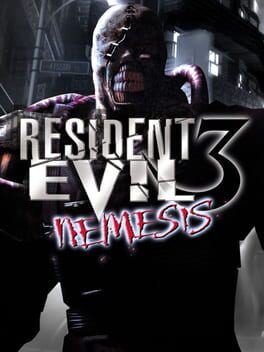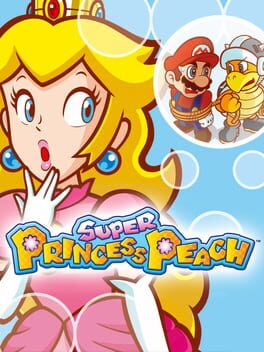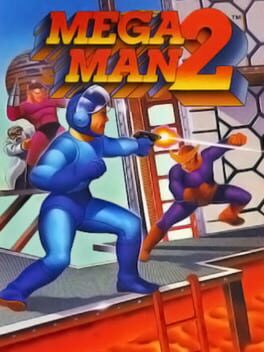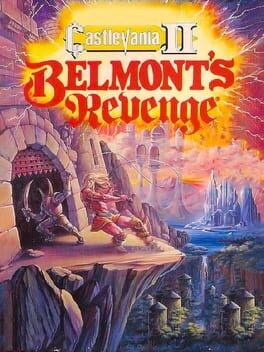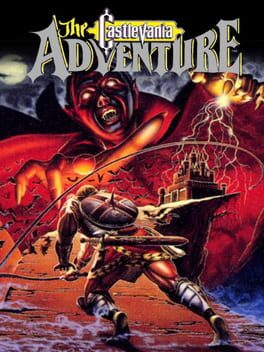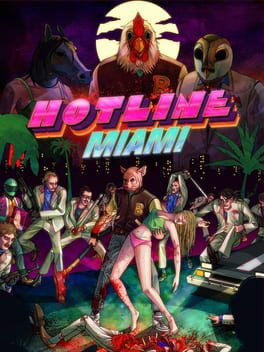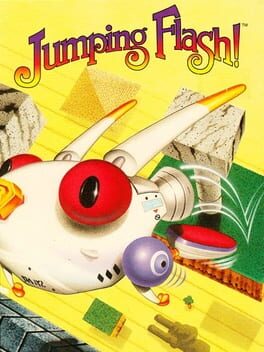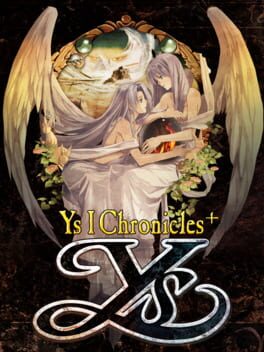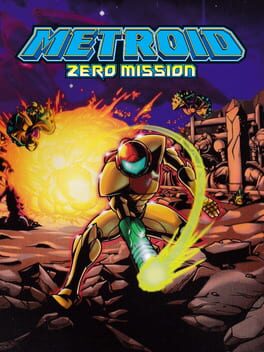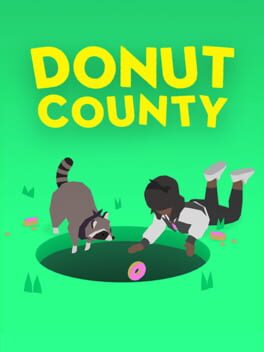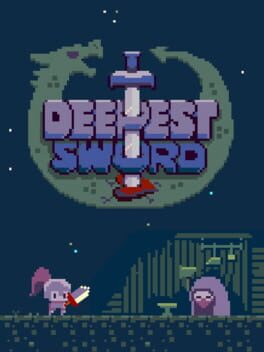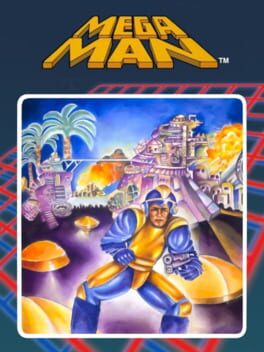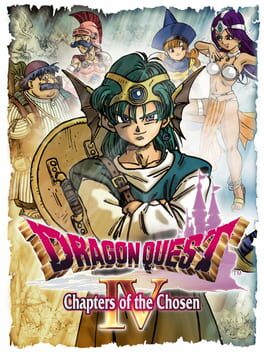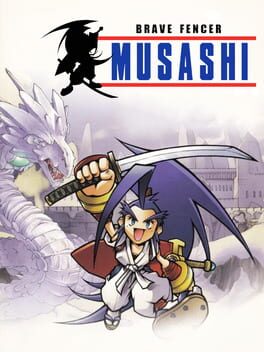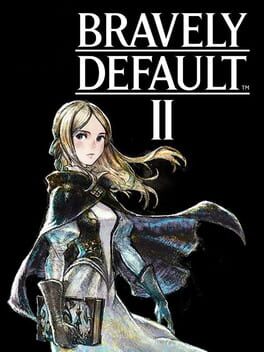SwitSwat
BACKER
When I first started playing this, I couldn't help but feel like I was setting myself up for disappointment. Resident Evil 2 is one of my absolute favorite games of all time (despite me being terrible at survival horror). The initial hour or so I spent with this game was mostly very stressful and confusing. The city setting just wasn't as fun to navigate as the police station in 2; not to mention I was getting my ass handed to me constantly with the narrow alleyways and annoying enemy placements. I mean, it's certainly just a "git gud" moment, but even when I was learning the ropes with RE2, I was still having fun learning. Not here. And so, I shelved the game, hoping to come back to it later with a newfound sense of appreciation.
Fast forward a few months to June 2nd, 2022 - Sony's State of Play. Among the reveals, we got our first look at the RE4 remake. It was hype and exactly the motivation boost I needed to return to the series. I figured I should cross this one off the backlog before moving on to RE4 again (which I had shelved as well). I ended up going through the rest of the game in a single day.
Now, it needs to be said, I still have some gripes with this one. In particular, I think the city portion is still vastly inferior to the police station. I ended up enjoying it for the most part, but it's still the primary reason I'm not planning on replaying this anytime soon. It feels a bit too large. Backtracking is a given in these games, but it felt particularly grueling in these early sections. But the clock tower and factory? Those were really fun.
As for Nemesis, there is one fight with him in particular that is just straight up broken. If ya know, ya know. Aside from that, I was dreading the random encounters with him. I don't mind the tank controls of these early RE games, but when you are trying to haul ass in the opposite direction because you suddenly get jumped by disfigured Thanos wanting to erase your progress, it's slightly annoying and terrifying. Thankfully, it didn't happen as often as I expected, so I'll give it a pass.
While gameplay is nearly identical to the previous 2 games, there does seem to be less puzzle solving here, with some added combat experimentation through the ability of crafting special ammunition through various gunpowder combinations. I hoarded most of the ones I found until the endgame so I can tear ass in the final fight. And let me tell you, that was a deliciously satisfying time. Oh, and they added a dodge mechanic but, I can barely execute it when I try. Most of the time I do, it's on accident. Another "git gud" moment, for sure.
Overall, it's a fantastic game. One which I kind of lament not loving at first. But I have to admit that RE2 really spoiled me. I'm aware of this game's rushed development, and I have no doubt that this game could have been a masterpiece if they had just spent a while longer working on it.
Fast forward a few months to June 2nd, 2022 - Sony's State of Play. Among the reveals, we got our first look at the RE4 remake. It was hype and exactly the motivation boost I needed to return to the series. I figured I should cross this one off the backlog before moving on to RE4 again (which I had shelved as well). I ended up going through the rest of the game in a single day.
Now, it needs to be said, I still have some gripes with this one. In particular, I think the city portion is still vastly inferior to the police station. I ended up enjoying it for the most part, but it's still the primary reason I'm not planning on replaying this anytime soon. It feels a bit too large. Backtracking is a given in these games, but it felt particularly grueling in these early sections. But the clock tower and factory? Those were really fun.
As for Nemesis, there is one fight with him in particular that is just straight up broken. If ya know, ya know. Aside from that, I was dreading the random encounters with him. I don't mind the tank controls of these early RE games, but when you are trying to haul ass in the opposite direction because you suddenly get jumped by disfigured Thanos wanting to erase your progress, it's slightly annoying and terrifying. Thankfully, it didn't happen as often as I expected, so I'll give it a pass.
While gameplay is nearly identical to the previous 2 games, there does seem to be less puzzle solving here, with some added combat experimentation through the ability of crafting special ammunition through various gunpowder combinations. I hoarded most of the ones I found until the endgame so I can tear ass in the final fight. And let me tell you, that was a deliciously satisfying time. Oh, and they added a dodge mechanic but, I can barely execute it when I try. Most of the time I do, it's on accident. Another "git gud" moment, for sure.
Overall, it's a fantastic game. One which I kind of lament not loving at first. But I have to admit that RE2 really spoiled me. I'm aware of this game's rushed development, and I have no doubt that this game could have been a masterpiece if they had just spent a while longer working on it.
2005
A game I decided to start playing alongside New Super Mario Bros. What I didn't expect is finishing this one first. While I was more invested, that's not to say that I think this game is better, per se, but sometimes you just need to change up your routine a bit.
In a franchise with such a repetitive premise that has been going strong for nearly 40 years, it's easy to experience burnout or outright boredom at times, even as a fan of platformers. Super Princess Peach isn't exactly a shining example of great level design, but its simple gameplay gimmicks and twist on the classic "save the princess" trope were enough to keep me entertained throughout.
Across the game's 8 worlds, you play as Princess Peach, rescuing Toads hidden inside of pink ! boxes, with the ultimate goal of saving Mario from Bowser. The game's main gimmick is that you can switch between 4 emotions to solve basic puzzles or defeat certain bosses. Just to make it slightly annoying, these emotions are tied to a depletable gauge. Sometimes I found myself running out and having to scavenge the area for enemies to "consume" to refill it. But that said, there's nothing all that deep about this mechanic, and there's a point well before the final boss where you've pretty much seen most, if not all of the gimmicks the game throws at you. But that's ok, because there's something kind of soothing about the game.
Mario games, even if most aren't known for being a huge challenge, still usually require focus to navigate tricky sections of platforming while avoiding enemies. SPP makes away with lives, and its slower pace of gameplay makes for a more relaxed experience. Definitely a pretty easy game overall, but I loved its charm. Boss battles were especially fun, as they actually required some level of strategy when compared to the usual Mario tradition of just jumping on them a few times.
My biggest complaint? Finding every Toad is mandatory if you wanna fight the final boss and beat the game, which for the most part isn't too bad, but some of the later stages can be tedious to navigate as you search for them. No shame in using a guide if you're missing a few.
In a franchise with such a repetitive premise that has been going strong for nearly 40 years, it's easy to experience burnout or outright boredom at times, even as a fan of platformers. Super Princess Peach isn't exactly a shining example of great level design, but its simple gameplay gimmicks and twist on the classic "save the princess" trope were enough to keep me entertained throughout.
Across the game's 8 worlds, you play as Princess Peach, rescuing Toads hidden inside of pink ! boxes, with the ultimate goal of saving Mario from Bowser. The game's main gimmick is that you can switch between 4 emotions to solve basic puzzles or defeat certain bosses. Just to make it slightly annoying, these emotions are tied to a depletable gauge. Sometimes I found myself running out and having to scavenge the area for enemies to "consume" to refill it. But that said, there's nothing all that deep about this mechanic, and there's a point well before the final boss where you've pretty much seen most, if not all of the gimmicks the game throws at you. But that's ok, because there's something kind of soothing about the game.
Mario games, even if most aren't known for being a huge challenge, still usually require focus to navigate tricky sections of platforming while avoiding enemies. SPP makes away with lives, and its slower pace of gameplay makes for a more relaxed experience. Definitely a pretty easy game overall, but I loved its charm. Boss battles were especially fun, as they actually required some level of strategy when compared to the usual Mario tradition of just jumping on them a few times.
My biggest complaint? Finding every Toad is mandatory if you wanna fight the final boss and beat the game, which for the most part isn't too bad, but some of the later stages can be tedious to navigate as you search for them. No shame in using a guide if you're missing a few.
1989
The original Mega Man is the only one in the series I really have any nostalgia for. Finishing it as a kid with no save states is still probably my proudest achievement in gaming. Still, its easy to see how its difficulty and general unpolish keeps it from being a fan favorite. On the other hand, it seems that MM2 tends to always get brought up on the topic of "best Mega Man games," and it's easy to see why.
Gameplay remains relatively unchanged, but the difficulty (save for a few late games sections) has been greatly reduced through better enemy placement/spawns and less tedious level design. The boss count has also been increased, though most of them were perhaps too easy, I think.
It may shock you, but I still prefer MM1 on an overall first playthrough. However, first impressions aren't everything, and while I appreciate the hours of fun that MM1 provided me as a kid, I'm not sure I can stomach another playthrough of it (without save states) anytime soon. On the other hand, I have just finished MM2 for a second time shortly before typing up this review, and I can safely say that it has great replay value. It's just an overall breezy, fun platformer; one which I can definitely understand its enduring appeal.
Gameplay remains relatively unchanged, but the difficulty (save for a few late games sections) has been greatly reduced through better enemy placement/spawns and less tedious level design. The boss count has also been increased, though most of them were perhaps too easy, I think.
It may shock you, but I still prefer MM1 on an overall first playthrough. However, first impressions aren't everything, and while I appreciate the hours of fun that MM1 provided me as a kid, I'm not sure I can stomach another playthrough of it (without save states) anytime soon. On the other hand, I have just finished MM2 for a second time shortly before typing up this review, and I can safely say that it has great replay value. It's just an overall breezy, fun platformer; one which I can definitely understand its enduring appeal.
A superior sequel in every way. No more annoying slowdown, the level design is a bit more interesting, and the BS difficulty has been greatly toned down for the most part.
Unfortunately, they still forgot to make the game fun. Instead of having a fresh scoop of poop on a cone, you now have a vanilla cone with poop sprinkles. You still wouldn't want to eat it.
Unfortunately, they still forgot to make the game fun. Instead of having a fresh scoop of poop on a cone, you now have a vanilla cone with poop sprinkles. You still wouldn't want to eat it.
This game is literal hellspawn conceived by the Dark Lord himself. A disgusting lagfest of boring and downright sadistic level design, even by Castlevania standards. The amount of pixel perfect jumps required to beat this is ludicrous.
I'm just glad I didn't grow up in the 80's/early 90's, because there is no doubt I would have fallen for that "Official Nintendo Seal of Quality" and I would have never forgiven them for it.
I'm just glad I didn't grow up in the 80's/early 90's, because there is no doubt I would have fallen for that "Official Nintendo Seal of Quality" and I would have never forgiven them for it.
2012
It's crazy to think that it's been a decade since this game came out. Indies were starting to gain a lot more traction and attention and Hotline Miami had its time in the spotlight. I attempted to get into it back then, but I found it frustratingly difficult to the point that I shelved it within the first half hour.
As part of someone's suggestion, I decided to revisit it again with an open mind. I certainly got farther this time, and I will say, I was actually enjoying it. But the satisfaction that came with the fast-paced mayhem did not last. Even as early as Chapter 3, the game's difficulty started to rear its ugly head again. And yeah, I know a lot of people will just say "get gud," but as someone who enjoys a good challenge from time to time, I don't feel like this game does it fairly.
Maybe it's just me, but aiming is a constant struggle in this game. Even when I try to sneak behind an enemy to line up my shot perfectly, I still somehow miss half the time. Spraying and praying is not an option either because that usually leads to every enemy being alerted of my position, and one of them is bound to kill me. And even if I manage to down a large group, it's hard to tell if one of them survived among the pile of bodies until it's too late and you have no time to react. Apart from that, you also have the really aggressive AI which often comes for you off screen...
I spent almost half an hour trying to beat Chapter 4 and when I got close to clearing the first area, some enemy sniped me from the very edge of the screen through a window. I didn't even know it was a window at first. That was pretty much when I threw in the towel. I just couldn't stand to persevere through the frustration.
Hotline Miami is definitely a game which shows its appeal. But between the janky aim controls and ridiculous difficulty, I find it hard to enjoy. I might never finish it, but I don't mind admitting that I'm probably just not good enough at its mechanics.
As part of someone's suggestion, I decided to revisit it again with an open mind. I certainly got farther this time, and I will say, I was actually enjoying it. But the satisfaction that came with the fast-paced mayhem did not last. Even as early as Chapter 3, the game's difficulty started to rear its ugly head again. And yeah, I know a lot of people will just say "get gud," but as someone who enjoys a good challenge from time to time, I don't feel like this game does it fairly.
Maybe it's just me, but aiming is a constant struggle in this game. Even when I try to sneak behind an enemy to line up my shot perfectly, I still somehow miss half the time. Spraying and praying is not an option either because that usually leads to every enemy being alerted of my position, and one of them is bound to kill me. And even if I manage to down a large group, it's hard to tell if one of them survived among the pile of bodies until it's too late and you have no time to react. Apart from that, you also have the really aggressive AI which often comes for you off screen...
I spent almost half an hour trying to beat Chapter 4 and when I got close to clearing the first area, some enemy sniped me from the very edge of the screen through a window. I didn't even know it was a window at first. That was pretty much when I threw in the towel. I just couldn't stand to persevere through the frustration.
Hotline Miami is definitely a game which shows its appeal. But between the janky aim controls and ridiculous difficulty, I find it hard to enjoy. I might never finish it, but I don't mind admitting that I'm probably just not good enough at its mechanics.
1995
It's easy to see why this often gets labeled as a tech demo for the PS1. The console had just come out in America, and 3D platformers were still in their infancy. Heck, Super Mario 64 was still a year away to introduce the mainstream audience just how well platformers can translate to the 3rd dimension.
With that said, this was certainly the time for developers to experiment and see what could stick. While not the zaniest game I've played, it's certainly one of the quirkiest as far platformers go. Fever dream induced imagery aside, the novel approach to the gameplay is honestly pretty solidly implemented. The game is presented in a first-person perspective. You can move around and shoot at enemies with your laser projectiles or expendable fireworks you collect. Upon performing a double jump, the camera automatically pans downwards, so the player can see where they will land and adjust their movement accordingly. It just works, despite the mish mash of polygonal landscapes. In fact, I'm surprised it didn't give me as much of a headache as I expected.
That's really all there is to its unique approach. Levels are fairly standard. 6 worlds. 3 levels each. 2 of which require collecting 4 "jet pods" before proceeding to the exit to finish. They're pretty easy for the most part, though the standout good time for me were the boss fights (level 3 of each world for the most part). Granted, these aren't anything too crazy or difficult, but they were pretty fun to exploit with the jumping mechanic. Bouncing and unleashing hell (with fireworks) on them was pretty satisfying.
It's quite a short, albeit fun little game that I'm glad I got to check out. I remember reading somewhere that the developers were hoping that Robbit would be the next big mascot, competing against the likes of Mario and Sonic. Yeah... that was never going to happen. Still, it's a bit sad that this game has been lost to the bowels of gaming history, and I do recommend giving it a shot, especially if you're a fan of platformers.
With that said, this was certainly the time for developers to experiment and see what could stick. While not the zaniest game I've played, it's certainly one of the quirkiest as far platformers go. Fever dream induced imagery aside, the novel approach to the gameplay is honestly pretty solidly implemented. The game is presented in a first-person perspective. You can move around and shoot at enemies with your laser projectiles or expendable fireworks you collect. Upon performing a double jump, the camera automatically pans downwards, so the player can see where they will land and adjust their movement accordingly. It just works, despite the mish mash of polygonal landscapes. In fact, I'm surprised it didn't give me as much of a headache as I expected.
That's really all there is to its unique approach. Levels are fairly standard. 6 worlds. 3 levels each. 2 of which require collecting 4 "jet pods" before proceeding to the exit to finish. They're pretty easy for the most part, though the standout good time for me were the boss fights (level 3 of each world for the most part). Granted, these aren't anything too crazy or difficult, but they were pretty fun to exploit with the jumping mechanic. Bouncing and unleashing hell (with fireworks) on them was pretty satisfying.
It's quite a short, albeit fun little game that I'm glad I got to check out. I remember reading somewhere that the developers were hoping that Robbit would be the next big mascot, competing against the likes of Mario and Sonic. Yeah... that was never going to happen. Still, it's a bit sad that this game has been lost to the bowels of gaming history, and I do recommend giving it a shot, especially if you're a fan of platformers.
2013
Often released as a bundle with its immediate sequel, Ys I really is just one half of a bigger whole. However, since it still works as its own standalone game, I decided to review them separately. As the first Ys game I ever played, there was an initial sense of confusion as I tried to figure out the somewhat archaic combat system and lack of explicit guidance. Thankfully, once it clicked, I enjoyed my short time with it and made me eager to check out the rest of the series.
Story: Adol Christin is a young, wandering adventurer who happens to come across the town of Minea, in the land of Esteria. Here, he meets a fortuneteller named Sara, who informs him of a terrible evil that he must ultimately bring an end to (nothing new, amirite?). In order to do this, he must find the six Books of Ys; text which contains the history of the ancient land of Ys and the knowledge needed to bring an end to the dark forces at bay.
Despite containing a simple plot, it’s still impressive to note how it exceeds expectations for a game released in 1987. In the same year that The Legend of Zelda released for the NES in North America, Falcom was creating an ambitious duology that not only contains plenty of dialogue, but also fairly interesting lore in the way of solid worldbuilding, interesting NPC conversations, and a fairly detailed and expansive backstory for the main hero in the original game’s manual; a backstory containing locale and event descriptions that would continue to be referenced in future games to this day.
Gameplay: This was the biggest roadblock upon starting the game. The infamous “bump” combat is a weird system that, although easy to understand, is incredibly awkward to execute for a first-time player and takes a bit of getting used to. But once I did, I was making mincemeat of enemies left and right. The bump combat simply involves running into enemies at an off angle in order to minimize damage received and increase damage taken. There is no attack button involved for this. The main limitation to this is the lack of variety. Even during bosses, it’s mainly a matter of learning its attack pattern and just bumping into their weak spot when possible. Still, the game is short, which helps a bit with its inevitable redundancy. Not to mention, the boss designs are damn cool and the fights themselves are still fun and challenging.
As with any RPG, you level up after gaining enough experience points. And trust me, if you feel like you are doing next to no damage to a boss, then you have to grind. Because here’s the thing: The level cap is 10. That’s right, you can only reach level 10 in this game, which means that each level gives you quite the significant boost to strength and defense. With each new area, enemies give a lot more EXP, so grinding isn’t much of a problem in this game, as it’s fairly quick.
Apart from this, there’s also a shop where you can buy better equipment, as is typical for the genre.
Through this short journey, NPC’s will give you hints on certain items you must find and use in order to make progress. None of these are usually too cryptic but, backtracking and traversing some of the maze-like dungeons can be a bit of a chore unless you look up a map. The final dungeon is especially huge and can be a bit of pain. And um… if I can just vent for a second…: WHAT WERE THEY THINKING WITH THAT FINAL BOSS? All I can say is, prepare your butthole.
Music: Um… yeah… There is no reason for the music to be this good. Honestly, all the Ys games I’ve played have had great soundtracks, but it’s especially impressive to hear these tracks from a game released 35 years ago. Granted, with this being a remaster, the soundtrack has been re-recorded and remixed, but even after listening to the original soundtrack, it’s amazing to hear the foundation of a wonderfully melodic and haunting track list that perfectly captures the sense of adventure. Not much else to say here. The music is fantastic.
Ys is a series that usually flies under the radar of many RPG fans, and even with the recent success of VIII and IX, many would still be hard pressed to return to the series’ roots. I believe it’s well worth it, though. Ys I (and II) may not be a perfect experience, and it is admittedly not for everyone, but with its short playtime and classic Falcom charm, it just begs to be given a chance and experienced.
Story: Adol Christin is a young, wandering adventurer who happens to come across the town of Minea, in the land of Esteria. Here, he meets a fortuneteller named Sara, who informs him of a terrible evil that he must ultimately bring an end to (nothing new, amirite?). In order to do this, he must find the six Books of Ys; text which contains the history of the ancient land of Ys and the knowledge needed to bring an end to the dark forces at bay.
Despite containing a simple plot, it’s still impressive to note how it exceeds expectations for a game released in 1987. In the same year that The Legend of Zelda released for the NES in North America, Falcom was creating an ambitious duology that not only contains plenty of dialogue, but also fairly interesting lore in the way of solid worldbuilding, interesting NPC conversations, and a fairly detailed and expansive backstory for the main hero in the original game’s manual; a backstory containing locale and event descriptions that would continue to be referenced in future games to this day.
Gameplay: This was the biggest roadblock upon starting the game. The infamous “bump” combat is a weird system that, although easy to understand, is incredibly awkward to execute for a first-time player and takes a bit of getting used to. But once I did, I was making mincemeat of enemies left and right. The bump combat simply involves running into enemies at an off angle in order to minimize damage received and increase damage taken. There is no attack button involved for this. The main limitation to this is the lack of variety. Even during bosses, it’s mainly a matter of learning its attack pattern and just bumping into their weak spot when possible. Still, the game is short, which helps a bit with its inevitable redundancy. Not to mention, the boss designs are damn cool and the fights themselves are still fun and challenging.
As with any RPG, you level up after gaining enough experience points. And trust me, if you feel like you are doing next to no damage to a boss, then you have to grind. Because here’s the thing: The level cap is 10. That’s right, you can only reach level 10 in this game, which means that each level gives you quite the significant boost to strength and defense. With each new area, enemies give a lot more EXP, so grinding isn’t much of a problem in this game, as it’s fairly quick.
Apart from this, there’s also a shop where you can buy better equipment, as is typical for the genre.
Through this short journey, NPC’s will give you hints on certain items you must find and use in order to make progress. None of these are usually too cryptic but, backtracking and traversing some of the maze-like dungeons can be a bit of a chore unless you look up a map. The final dungeon is especially huge and can be a bit of pain. And um… if I can just vent for a second…: WHAT WERE THEY THINKING WITH THAT FINAL BOSS? All I can say is, prepare your butthole.
Music: Um… yeah… There is no reason for the music to be this good. Honestly, all the Ys games I’ve played have had great soundtracks, but it’s especially impressive to hear these tracks from a game released 35 years ago. Granted, with this being a remaster, the soundtrack has been re-recorded and remixed, but even after listening to the original soundtrack, it’s amazing to hear the foundation of a wonderfully melodic and haunting track list that perfectly captures the sense of adventure. Not much else to say here. The music is fantastic.
Ys is a series that usually flies under the radar of many RPG fans, and even with the recent success of VIII and IX, many would still be hard pressed to return to the series’ roots. I believe it’s well worth it, though. Ys I (and II) may not be a perfect experience, and it is admittedly not for everyone, but with its short playtime and classic Falcom charm, it just begs to be given a chance and experienced.
I've played plenty of Metroid games prior to this. I never beat any of them prior to this one, though. Why? I'll blame it on my short attention span when I was younger. With the release of Metroid Dread looming over the horizon, I figured I should probably delve back into the series. I decided on diving back with this one, seeing as it's a remake of the original Metroid, which I have played. I'll admit, though, the original Metroid is not particularly great. Environments were very samey and the lack of a map system made it extremely confusing and often irritating to navigate. This remake basically fixes every issue I ever had with that game and creates something truly special.
Honestly, I'm hesitant to even continue calling this a simple remake. It's more like a beautiful re-imagining. Everything about this game is consistently wonderful, from the pretty sprite-work, to the fast and tight movement, and the fun exploration. Also, the "stealth" section near the end? Just epic. It's short length also works to its benefit, as even just a day after beating it, I already felt inclined to give it another go.
I feel kind of bummed that I didn't dedicate myself to this series much as a kid. Super Metroid felt grand, but the amount of one-way doors and my lack of inexperience with Metroidvanias left me quite stumped at times. Metroid Prime felt fresh with its gorgeous 3D environments, but its slow movement made backtracking and finding my way through its complex maps tedious. As it stands, this game has once again reinvigorated my hype for this franchise and I'm eager to go back and give those games and the rest of the series another go. Here's to hoping that Metroid Dread is worth the wait.
Honestly, I'm hesitant to even continue calling this a simple remake. It's more like a beautiful re-imagining. Everything about this game is consistently wonderful, from the pretty sprite-work, to the fast and tight movement, and the fun exploration. Also, the "stealth" section near the end? Just epic. It's short length also works to its benefit, as even just a day after beating it, I already felt inclined to give it another go.
I feel kind of bummed that I didn't dedicate myself to this series much as a kid. Super Metroid felt grand, but the amount of one-way doors and my lack of inexperience with Metroidvanias left me quite stumped at times. Metroid Prime felt fresh with its gorgeous 3D environments, but its slow movement made backtracking and finding my way through its complex maps tedious. As it stands, this game has once again reinvigorated my hype for this franchise and I'm eager to go back and give those games and the rest of the series another go. Here's to hoping that Metroid Dread is worth the wait.
2018
I don't understand. I just... DON'T UNDERSTAND! Is it the wholesome vibes? The cute art style? Aesthetics alone do not make a game, in my opinion. So you play as a hole... and it gets bigger as you swallow up stuff. I guess it's like the Anti-Katamari in a way. But unlike Katamari, this isn't fun. There's no challenge. No real drive to proceed. The story sure as hell didn't motivate me. The only motivation I had here was that there was an easy platinum waiting for me at the end.
I can't even argue that it's poorly made or that no attempt was made. Sure, it's cute. I'm sure it appeals to some. But I just couldn't find much fun in such a simplistic idea for "gameplay." I sure was craving some donuts afterwards, though.
I can't even argue that it's poorly made or that no attempt was made. Sure, it's cute. I'm sure it appeals to some. But I just couldn't find much fun in such a simplistic idea for "gameplay." I sure was craving some donuts afterwards, though.
2021
1987
I understand where a lot of people stand with this game. It shows its age, yes. As the first game in the series, it was bound to be a bit rough around the edges. The thing is, that doesn't really matter to me. At the time of writing this, this is the only Mega Man title I have finished without save states, and as such, is the one I am most familiar with.
I played this a ton when I was a kid. I also died alot. Was it masochism that drove me forward? I can't say for sure, but I put in a great amount of effort and hours into beating it. This was on the Wii, mind you. Beating this game without save states is still my greatest personal achievement in gaming. I have no doubt that Mega Man 2 is an objectively better game, among others. But I have a soft spot for this one thanks to nostalgia. I probably wouldn't willfully subject myself to another legit playthrough just because it's so tough. But it was a fun challenge while it lasted.
I played this a ton when I was a kid. I also died alot. Was it masochism that drove me forward? I can't say for sure, but I put in a great amount of effort and hours into beating it. This was on the Wii, mind you. Beating this game without save states is still my greatest personal achievement in gaming. I have no doubt that Mega Man 2 is an objectively better game, among others. But I have a soft spot for this one thanks to nostalgia. I probably wouldn't willfully subject myself to another legit playthrough just because it's so tough. But it was a fun challenge while it lasted.
For anyone wanting to get into the older Dragon Quest titles, IV seems like the best starting point, personally. Think about this: You have an RPG that originally came out in 1990 for the NES, with an actual attempt at character development. Not only that, but they took it a step further by dividing it up into chapters. The first four specifically focus on certain characters, giving you a nice introduction to each one and their basic jobs in a party setting. As an introduction to the series, this works really well, as the chapter system allows for a big window of time to familiarize yourself with the world exploration and battle mechanics in a relatively linear fashion. Many RPGs from this era can be intimidating due to the lack of direction, but DQ IV makes it feel accessible and welcoming. For reference, there are five main chapters in this remake (with an optional post-game chapter), and it took me around 10 hours to finish the first 4. The fifth chapter is where everyone finally comes together and the real journey begins. By that point, you've spent a good chunk of time with the game and opening up the world is no
longer so intimidating.
Granted, while dividing up the game like this is a very innovative storytelling technique for the time, some may be curious if drags out for too long. I will admit, some character's chapters are certainly more interesting than others. Chapter 3 in particular is pretty slow as you take control of a merchant character who goes about his day selling weapons at a shop to make some money. You'll be doing this for a while at the start of it just to afford proper gear to go out and fight some baddies. While certain sections like this can be rather sluggish, they often don't drag on for too long, and they provide some really cool immersion into these characters' lives. By the time you reach Chapter 5, I feel that you will be invested enough in these characters (provided you are enjoying the game), to make the final chapter all the more interesting.
I spent enough time trying to sell you on the game's main storytelling gimmick, but how does the game itself play? If you've never played a Dragon Quest game, it's pretty standard classic JRPG fare. You talk to people and receive valuable hints, traverse dungeons, fight bosses, the works. DQ IV's bright and colorful world keeps things fun. No dungeons ever truly feel tedious, and while grinding is certainly necessary at points, it's nothing too bad. The great thing about this series in general is how valuable level ups can be. Leveling up even once can make all the difference when confronted with a difficult area/boss. And with the ability to swap out characters even during battle once you have your full team with you in the latter half of the game, the game feels quite forgiving for the most part. With this remake, you get some great quality of life improvements too, such as quick saving in most places, even within dungeons. Besides this, you also get full party control in the final two chapters (this includes the post-game chapter). In the original game, you could only control the hero while the rest of your party was AI-controlled. The option is still there for anyone that wants to go the traditional route, though.
Overall, while I think some of the chapters could have benefitted from being a bit more fleshed out or cutting some minor fluff, it still does a great job on worldbuilding and keeping things fresh with some variety in its gameplay and character POV. The world is vibrant and charming, boss fights are a joy to conquer, and the story and characters have enough depth for a 30+ year old game to be worth the time. Also, this game seriously has one of the coolest final boss fights I've ever encountered in any JRPG. I recommend the mobile version due to it including the party chat feature, which serves to slightly flesh out character personalities more through fun side banter. It's not necessary to enjoy the game, but the option is there. Whichever version you play, you're still in for a great classic DQ experience, just with the added modern QOL improvements.
longer so intimidating.
Granted, while dividing up the game like this is a very innovative storytelling technique for the time, some may be curious if drags out for too long. I will admit, some character's chapters are certainly more interesting than others. Chapter 3 in particular is pretty slow as you take control of a merchant character who goes about his day selling weapons at a shop to make some money. You'll be doing this for a while at the start of it just to afford proper gear to go out and fight some baddies. While certain sections like this can be rather sluggish, they often don't drag on for too long, and they provide some really cool immersion into these characters' lives. By the time you reach Chapter 5, I feel that you will be invested enough in these characters (provided you are enjoying the game), to make the final chapter all the more interesting.
I spent enough time trying to sell you on the game's main storytelling gimmick, but how does the game itself play? If you've never played a Dragon Quest game, it's pretty standard classic JRPG fare. You talk to people and receive valuable hints, traverse dungeons, fight bosses, the works. DQ IV's bright and colorful world keeps things fun. No dungeons ever truly feel tedious, and while grinding is certainly necessary at points, it's nothing too bad. The great thing about this series in general is how valuable level ups can be. Leveling up even once can make all the difference when confronted with a difficult area/boss. And with the ability to swap out characters even during battle once you have your full team with you in the latter half of the game, the game feels quite forgiving for the most part. With this remake, you get some great quality of life improvements too, such as quick saving in most places, even within dungeons. Besides this, you also get full party control in the final two chapters (this includes the post-game chapter). In the original game, you could only control the hero while the rest of your party was AI-controlled. The option is still there for anyone that wants to go the traditional route, though.
Overall, while I think some of the chapters could have benefitted from being a bit more fleshed out or cutting some minor fluff, it still does a great job on worldbuilding and keeping things fresh with some variety in its gameplay and character POV. The world is vibrant and charming, boss fights are a joy to conquer, and the story and characters have enough depth for a 30+ year old game to be worth the time. Also, this game seriously has one of the coolest final boss fights I've ever encountered in any JRPG. I recommend the mobile version due to it including the party chat feature, which serves to slightly flesh out character personalities more through fun side banter. It's not necessary to enjoy the game, but the option is there. Whichever version you play, you're still in for a great classic DQ experience, just with the added modern QOL improvements.
1998
BFM is a game that obviously had a lot of heart put into it, but is ultimately let down by its own ambitions. Knowing this game's status as a cult classic and one of the more underrated games under Square's belt, I had always been looking forward to finally giving it a try. Well, upon finally getting through it, it's a shame that my thoughts end up being pretty negative for the most part. But to start, I'll address the positives.
As I said, a lot of love clearly went into crafting this game. The game's art direction is brimming with childlike whimsy and Saturday morning cartoon vibes. The voice acting is surprinsingly solid for the time; often times even hilarious, but authentically so. And I briefly stated in the beginning that it had ambitions. These include things like a day and night cycle (including specific days of the week), healing foods that can spoil if kept too long, a system of copying enemy abilities to overcome certain obstacles, etc. These things are cool and all in theory, as they make the game feel unique in its own right. But while variety is the spice of life, it's things like this that make the game much more cumbersome than they ought to be.
I played this game shortly after having completed my first playthrough of Threads of Fate (also made by Square) and I couldn't help but draw comparisons to it. Threads of Fate was by no means an amazing game imo, but it had enough charm and decent combat to keep me entertained. BFM certainly shares that whimsical charm with Threads of Fate, but many things it tries to accomplish, I just feel Threads did better. The combat for one just feels really stiff and uninteresting here. I decided to try avoiding engaging in combat relatively early on with the regular enemies and I ended up getting a nasty surprise later on as the bosses just became way too difficult due to being underleveled. Funny enough, I didn't think level mattered much in this game until then because it's got such a weird leveling convention (Mind, Body, Lum, etc). I didn't really know what any of these meant when looking at my stats.
As I also mentioned prior, you do have the ability to copy enemy abilities, which is required to navigate certain areas. This really is a pain, though, because you need to charge up your sword in order to throw it at an enemy and extract their ability. It sounds simple in theory, but the fact that you can only face one way while charging up is incredibly annoying because often times the enemy will be moving around and you can't properly line up your shot and end up taking damage from them in the process. It seems like a minor nitpick, but this was a problem I had early on and it was foreshadowing what was truly to come. All I can say is: My oh my, does this game have some really sadistic design choices. But first, a bit of sidetracking.
Again, bringing up the possibility of your items spoiling, this is quite silly, because there's really no point in buying almost anything other than cheese in this game, which is the only item that actually improves its healing properties the more time you keep it in storage. On the subject of time, the day and night cycle that was implemented means that certain events relating to the story can only be completed at specific times and in rare cases, even a specific day. It forces you to either go rest at an inn for however long or just let Musashi sleep on the floor until its the right time to get up. For such a cartoony game, they sure added quite a handful of real life inconveniances to its logic. Now, moving on from my side rant, what is it that makes me say this game is sadistic?
The main issue here is its difficulty due to questionable "dungeon" design and dodgy controls. It started off fine. I was even enjoying my time with the game for the first couple of chapters (though still not necessarily thinking it was a particularly great game). The real problems began when they started adding more platforming. The controls feel janky enough as is, and now you're forced to perform some often tricky jumps with a less than ideal camera angle and sometimes unresponsive controls. It made a lot of areas feel grating, but at the very least the bosses at the end of each chapter were interesting and often enjoyable. I did mention earlier that I seemed to hit a severe difficulty spike in the later stages of the game with the bosses, but granted, they would have been way easier if I had taken the time to engage in combat more to level up. But then again, if the devs wanted me to grind, then they should have made the combat more engaging.
If I had to make one more nitpick, it's that the game lacked level variety. With some of the backtracking you have to do, this can get quite annoying, especially when dealing with the overhead view which can get nauseating after going around in circles trying to figure out where to go. BFM is a cute game that deserved better gameplay, and while the story wasn't anything to write home about, I still enjoyed its personality and charm despite often finding myself completely defeated by its challenge and jank.
As I said, a lot of love clearly went into crafting this game. The game's art direction is brimming with childlike whimsy and Saturday morning cartoon vibes. The voice acting is surprinsingly solid for the time; often times even hilarious, but authentically so. And I briefly stated in the beginning that it had ambitions. These include things like a day and night cycle (including specific days of the week), healing foods that can spoil if kept too long, a system of copying enemy abilities to overcome certain obstacles, etc. These things are cool and all in theory, as they make the game feel unique in its own right. But while variety is the spice of life, it's things like this that make the game much more cumbersome than they ought to be.
I played this game shortly after having completed my first playthrough of Threads of Fate (also made by Square) and I couldn't help but draw comparisons to it. Threads of Fate was by no means an amazing game imo, but it had enough charm and decent combat to keep me entertained. BFM certainly shares that whimsical charm with Threads of Fate, but many things it tries to accomplish, I just feel Threads did better. The combat for one just feels really stiff and uninteresting here. I decided to try avoiding engaging in combat relatively early on with the regular enemies and I ended up getting a nasty surprise later on as the bosses just became way too difficult due to being underleveled. Funny enough, I didn't think level mattered much in this game until then because it's got such a weird leveling convention (Mind, Body, Lum, etc). I didn't really know what any of these meant when looking at my stats.
As I also mentioned prior, you do have the ability to copy enemy abilities, which is required to navigate certain areas. This really is a pain, though, because you need to charge up your sword in order to throw it at an enemy and extract their ability. It sounds simple in theory, but the fact that you can only face one way while charging up is incredibly annoying because often times the enemy will be moving around and you can't properly line up your shot and end up taking damage from them in the process. It seems like a minor nitpick, but this was a problem I had early on and it was foreshadowing what was truly to come. All I can say is: My oh my, does this game have some really sadistic design choices. But first, a bit of sidetracking.
Again, bringing up the possibility of your items spoiling, this is quite silly, because there's really no point in buying almost anything other than cheese in this game, which is the only item that actually improves its healing properties the more time you keep it in storage. On the subject of time, the day and night cycle that was implemented means that certain events relating to the story can only be completed at specific times and in rare cases, even a specific day. It forces you to either go rest at an inn for however long or just let Musashi sleep on the floor until its the right time to get up. For such a cartoony game, they sure added quite a handful of real life inconveniances to its logic. Now, moving on from my side rant, what is it that makes me say this game is sadistic?
The main issue here is its difficulty due to questionable "dungeon" design and dodgy controls. It started off fine. I was even enjoying my time with the game for the first couple of chapters (though still not necessarily thinking it was a particularly great game). The real problems began when they started adding more platforming. The controls feel janky enough as is, and now you're forced to perform some often tricky jumps with a less than ideal camera angle and sometimes unresponsive controls. It made a lot of areas feel grating, but at the very least the bosses at the end of each chapter were interesting and often enjoyable. I did mention earlier that I seemed to hit a severe difficulty spike in the later stages of the game with the bosses, but granted, they would have been way easier if I had taken the time to engage in combat more to level up. But then again, if the devs wanted me to grind, then they should have made the combat more engaging.
If I had to make one more nitpick, it's that the game lacked level variety. With some of the backtracking you have to do, this can get quite annoying, especially when dealing with the overhead view which can get nauseating after going around in circles trying to figure out where to go. BFM is a cute game that deserved better gameplay, and while the story wasn't anything to write home about, I still enjoyed its personality and charm despite often finding myself completely defeated by its challenge and jank.
2021
Bravely Default II, much like its predecessors, is a game that's not afraid to wear its influences on its shoulders. It's quite clear that the age old "4 Heroes of Light" trope along with the collection of crystals to save the world is a plotline that's all too familiar and trite. It would be quite easy to dismiss this game as nothing more than a "by-the-numbers" RPG, but it's anything but, I believe. Granted, as of writing this review, I have not played the previous two entries, but after finishing this game, I am quite excited to delve into them soon enough. While the set-up and story overall isn't anything new or extraordinary, its the game's presentation that won me over.
I'll be honest, when I first booted this up, it was kind of a slowburn. The chibi-like character models felt off, the open world felt a bit empty and plain, and the set-up was all too familiar, as I've mentioned. Once jobs started getting introduced, I actually felt intimdated because this actually the first JRPG I've played with a job system, so I wasn't sure how confusing it would get. But more on that later. In the meantime, the more I played, the more I found myself drawn to the world and the characters. I came to love the chibi aesthetic and the sometimes over-the-top European accents and character quirks. Elvis in particular became the ideal buddy in my mind. A nice fellow I wish I could share a drink with. It's hard to explain what exactly made a lot of things in this game click for me, but they eventually did sooner rather than later and I'm glad they did.
As I mentioned the game features a job system which threw me off at first, but the more jobs I acquired, the more options were available to experiment with. See, I realize now that games like this rely more on your set-up strategy rather than just leveling up. It's easy enough to just cheese your way through most bosses wigth the right skills and job classes equipped. Of course, a lot of people may prefer the challenge of actually beating bosses without the use of cheap tactics, but the option is there. I for one found it really fun to exploit weaknesses and use them to my advantage. It feels like breaking the game, in a good way. It kind of scratched an itch I never realized I had. See, classics like Final Fantasy III and V seemed intimidating due to their job system, but I'm excited to try them out properly after enjoying my time with this. I've heard the battle system was changed somewhat from the previous two games, so I'll expand on that later on once I finish them, but I really enjoyed it and unlike most RPGs, I actually didn't feel bothered when I had to grind.
As I said in the beginning, the presentation is what won me over, and while I do think the majority of the enjoyment here lies within its gameplay and versatile job system, I feel like the direction they went with the clichéd story employed enough twists and intense moments to make it interesting. And this was also thanks to the vibrant cast of heroes and side characters alike, most of which I really liked. On that note, I really loved how sidequests were handled. Sure, you've got your generic fetch quests and "defeat x amount of monsters" quests. But sprinkled throughout are more in depth quests that add cutscenes and plot for the purposes of character development, which made hunting for sidequests feel all the more fun and worthwhile. Some of these led to some legitmately heartfelt moments that made me love the characters that much more.
Looking at this game with a more critical lens makes me aware that it isn't breaking any ground or accomplishing anything extraordinary, but with the amount of charm it has and how much fun I had with the boss fights, I can't help but admitting it's become one of my favorite JRPGs I've played. I'll be sure to update this review with some comparisons once I beat the first 2 games, but personally, this was a great introduction to the series and I'm glad I gave it a chance.
I'll be honest, when I first booted this up, it was kind of a slowburn. The chibi-like character models felt off, the open world felt a bit empty and plain, and the set-up was all too familiar, as I've mentioned. Once jobs started getting introduced, I actually felt intimdated because this actually the first JRPG I've played with a job system, so I wasn't sure how confusing it would get. But more on that later. In the meantime, the more I played, the more I found myself drawn to the world and the characters. I came to love the chibi aesthetic and the sometimes over-the-top European accents and character quirks. Elvis in particular became the ideal buddy in my mind. A nice fellow I wish I could share a drink with. It's hard to explain what exactly made a lot of things in this game click for me, but they eventually did sooner rather than later and I'm glad they did.
As I mentioned the game features a job system which threw me off at first, but the more jobs I acquired, the more options were available to experiment with. See, I realize now that games like this rely more on your set-up strategy rather than just leveling up. It's easy enough to just cheese your way through most bosses wigth the right skills and job classes equipped. Of course, a lot of people may prefer the challenge of actually beating bosses without the use of cheap tactics, but the option is there. I for one found it really fun to exploit weaknesses and use them to my advantage. It feels like breaking the game, in a good way. It kind of scratched an itch I never realized I had. See, classics like Final Fantasy III and V seemed intimidating due to their job system, but I'm excited to try them out properly after enjoying my time with this. I've heard the battle system was changed somewhat from the previous two games, so I'll expand on that later on once I finish them, but I really enjoyed it and unlike most RPGs, I actually didn't feel bothered when I had to grind.
As I said in the beginning, the presentation is what won me over, and while I do think the majority of the enjoyment here lies within its gameplay and versatile job system, I feel like the direction they went with the clichéd story employed enough twists and intense moments to make it interesting. And this was also thanks to the vibrant cast of heroes and side characters alike, most of which I really liked. On that note, I really loved how sidequests were handled. Sure, you've got your generic fetch quests and "defeat x amount of monsters" quests. But sprinkled throughout are more in depth quests that add cutscenes and plot for the purposes of character development, which made hunting for sidequests feel all the more fun and worthwhile. Some of these led to some legitmately heartfelt moments that made me love the characters that much more.
Looking at this game with a more critical lens makes me aware that it isn't breaking any ground or accomplishing anything extraordinary, but with the amount of charm it has and how much fun I had with the boss fights, I can't help but admitting it's become one of my favorite JRPGs I've played. I'll be sure to update this review with some comparisons once I beat the first 2 games, but personally, this was a great introduction to the series and I'm glad I gave it a chance.
